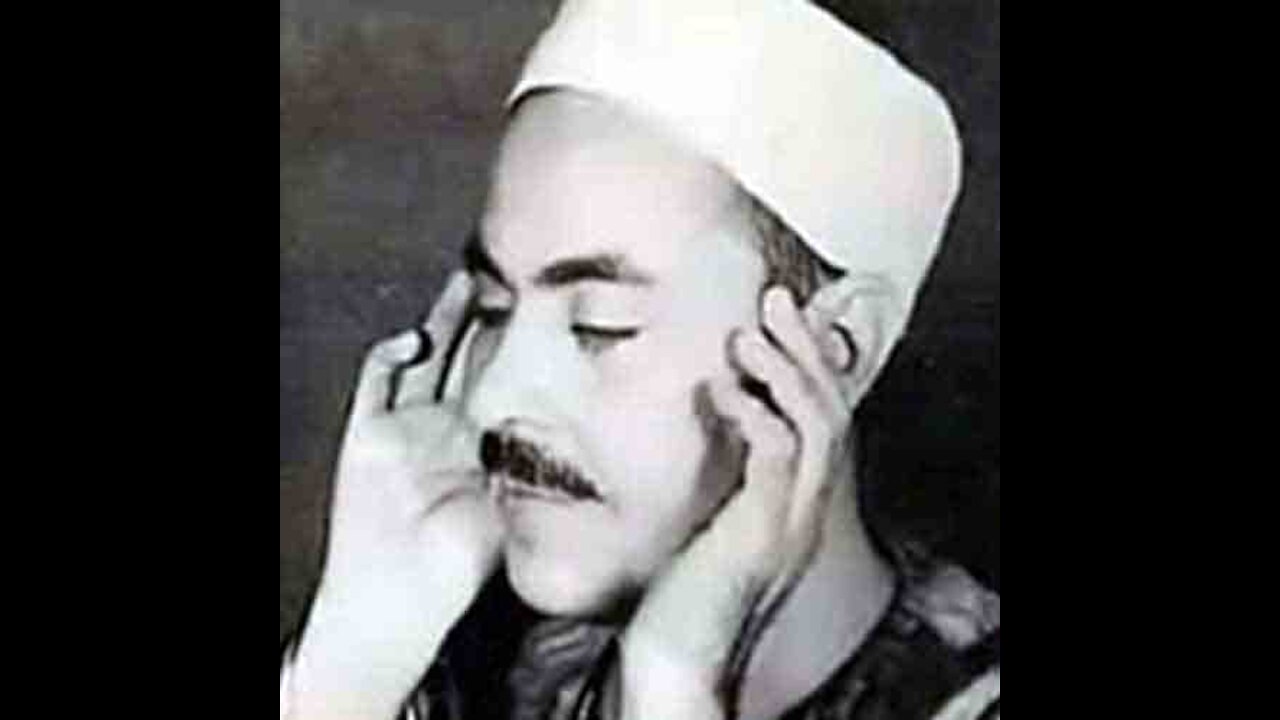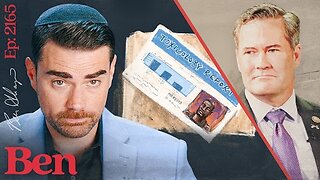Premium Only Content

Islamic ears
In the voice of Sheikh Muhammad Refaat
Sheikh Muhammad Rifaat had a beautiful voice with a fingerprint that did not repeat, and a unique and distinctive style in reciting the Qur’an. He used to recite the Qur’an with contemplation and reverence, making his listeners live the meanings of the Holy Qur’an and his positions with all his prey, not just with his ear, so he conveyed the message of the Qur’an and influenced the listeners of its recitation. He used to seek refuge in God from the accursed Satan, basmalah and chanting calmly and realizing, and then his voice would rise, as it was low in its beginning and after a not long time it would often become "high" but rational, touching the heart and possessing it, and reciting verses smoothly and carefully from it and sensing the ayat of the wise man.
His interest in the exits of the letters was great, so he used to give each letter its right not so that the meaning did not differ only, but so that the true meaning could reach the people’s heart, and his voice was really beautiful and resonant, and he was moving from reading to reading with brilliance and mastery and without cost. Sheikh Muhammad Rifaat possessed tremendous vocal energies, which made him able to move very smoothly between the shrines during his recitation of the Noble Qur’an, not only that, but he also possessed the ability to correspond with the senses of the listeners, so he knows when to cry them, and when to cheer them up through the verses of encouragement and intimidation in the Book of God Almighty Surely, I lost one of the Psalms of David, and if we put the aesthetics of the sound aside, let us move to his strength, his voice was so strong that he could reach more than 3,000 people in open spaces
Most of the recitations of Sheikh Muhammad Rifaat were in the Fadel Pasha Mosque in Cairo. People visited there to listen to his recitation until King Farouk, and the Egyptian Radio broadcasted his concerts from there, and in the summer he recited the Qur’an at the Morsi Abu al-Abbas Mosque in Alexandria. In addition to his live recitations on the air from the Egyptian Radio House, which contracted with him from its first opening, especially in Ramadan, he used to recite two recitations daily on the air, except on Sunday, and he used to read the first reading from nine o'clock until ten o'clock in the evening and the second from ten thirty-half until eleven And a quarter in the evening. As for his recordings, almost all of his recordings were recorded by one of his greatest fans, Zakaria Pasha Mahran, one of the dignitaries of the Qusiya Center in Assiut and a member of the Egyptian Senate, who is credited with preserving the legacy of Sheikh Rifat that we currently hear, and he loved Sheikh Rifaat without meeting him, and he was keen to record His concerts, which were broadcast on the Egyptian radio on the air, and for that he bought two gramophone devices from Germany, and when he learned of the Sheikh’s disease, he rushed to the radio station with one of these records, and he asked the radio officials to make a pension for the Sheikh. Raised for life. Indeed, the radio allocated 10 pounds a monthly pension to the Sheikh Rifaat, but the sheikh died before he received it, and Zakaria Pasha’s family donated the CDs to be published. The heirs of Sheikh Muhammad Rifaat obtained them after the death of Zakaria Pasha Mahran from his wife, Zainab Hanim Mubarak. Without these recordings, he would have lost his heritage except from 3 recordings kept by the radio. These records not only had an impact on the sheikh’s life, but also the loving “Zakaria Pasha” who was recorded without personal knowledge or vision of “Rifaat.” The wife of Zakaria Pasha said: Despite the activities of my husband Zakaria Pasha Nuran in economics, law, politics and authorship, his name is Not yet Karl, coupled with being the one who recorded a set of recordings of Sheikh Muhammad Refaat
-
 1:57
1:57
IOL-IndependentOnline
4 years ago $0.05 earnedIslamic State claims responsibility for Vienna attack
256 -
 0:13
0:13
Uhh
4 years agoAnastasia's ears
12 -
 0:44
0:44
B.C. Begley
4 years agoSuspected Islamic State gunmen kill 11 at military post outside Baghdad
83 -
 3:35
3:35
AfricanNewsAgency
4 years agoSOUTH AFRICA - Johannesburg - S.A. Islamic leaders response to NZ shooting (JwH)
36 -
 0:21
0:21
Newsy
4 years agoBomb Kills At Least 8 People At Islamic Seminary In Pakistan
803 -
 3:10
3:10
IOL-IndependentOnline
4 years agoWATCH: Islamic finance institutions serve a crucial role for BRI (Dwe)
3 -
 3:35
3:35
AfricanNewsAgency
4 years agoSOUTH AFRICA - Johannesburg - S.A. Islamic leaders response to NZ shooting (CHT)
-
 1:16:37
1:16:37
Sean Unpaved
4 hours agoWhat's Going On With The Transfer Portal? along with Former Defensive Tackle Mike Golic
29.1K -
 51:24
51:24
Ben Shapiro
4 hours agoEp. 2165 - National Security Bombshell & The Case For Derek Chauvin Ep.3 | The Autopsy
54.3K33 -
 1:02:48
1:02:48
The Tom Renz Show
3 hours agoDOGE War & Trump - Money is Behind Everything
14K5